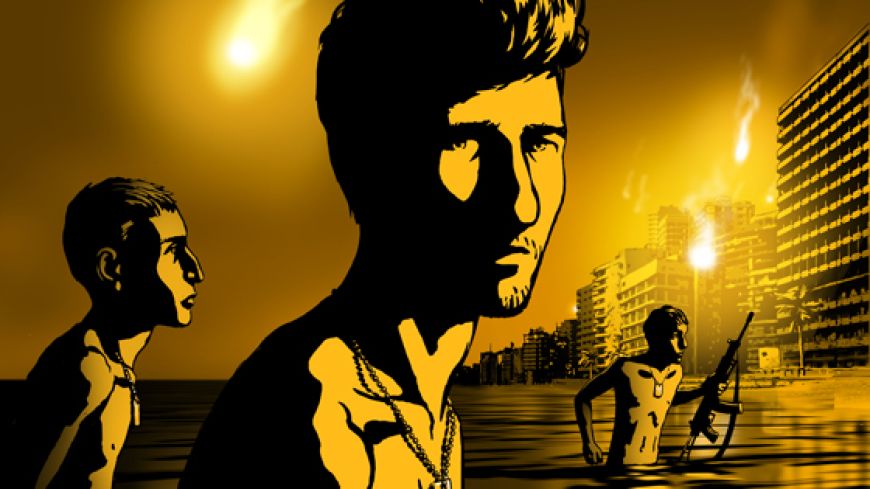
The annual Manipulate Visual Theatre Festival opens today (Monday) continuing until Saturday with a stimulating and eclectic programme of shows that merge puppetry, live performance, and multimedia (reviews of shows will be posted here shortly).
Manipulate also includes a screening at the Traverse on Wednesday of the Israeli vet, animated feature Waltz with Bashir, which was nominated for a Foreign Language Oscar in 2009.
Director Ari Folman, a draftee during Israel's invasion of Lebanon in 1982, wanted to tell a story about his wartime experiences. But he realised that “noone would want to watch a middle-aged man telling stories that happened 25 years ago without any archival footage to support them.” So he took the unusual step of making an animated documentary.
The four years Folman took making the autobiographical Waltz With Bashir (Vals Im Bashir) was a kind of therapy as he sought to unlock repressed memories of that episode in his life through interviews with friends and former comrades. Each of the war vets recall the horrors and stresses of combat, both as it happened and as it affected them in the ensuing years.
The resulting combination of original interviews put to comic book style visuals is something that is at once haunting, dreamlike, and beautiful in its imagery.
A combination of Flash, classic animation and 3D was used. “It was shot in a sound studio and cut as a 90-minute length video film. It was made into a story board, and then drawn with 2300 illustrations that were turned into animation,” explains Folman. The visual style is simple, but effective. It doesn't use rotoscope animation, where artists illustrate and paint over video images, but it does have that naturalistic aspect to it.
Animation allows Folman to decompartmentalize the worlds of dream, memory, and reality that normal video would not, showing how each is more closely connected than we normally give credit.
Each of the interviewees have poweful images that they carry within them. One has the recurring nightmare of being chased by a pack of snarling dogs. Another remembers the feeling of peace as he floated at sea after swimming away from an ambush that wiped out the rest of his squad.
Folman, himself, keeps seeing a recurring scene, possibly a memory, where he and two comrades emerge naked from the sea in a war-torn Beirut, dress, and walk into a street of wailing Palestinian women running toward them.
Folman's search for the blanks in his memory leads him to understanding Israel's role in the massacre of an estimated 3,000 refugees in the Sabra and Shatila refugee camps in Beirut. The title of the film, incidentally, is taken from the then president-elect of Lebanon, Bashir Gemayel, whose assassination in 1982 led to Phalangist Christian militias to purportrate their horrendous revenge. Along the way the film vividly conveys the tragedy and long-lasting psychological damage caused by war.
Screening Wednesday, 1 February, at the Traverse Theatre as part of the Manipulate Visual Theatre Festival

